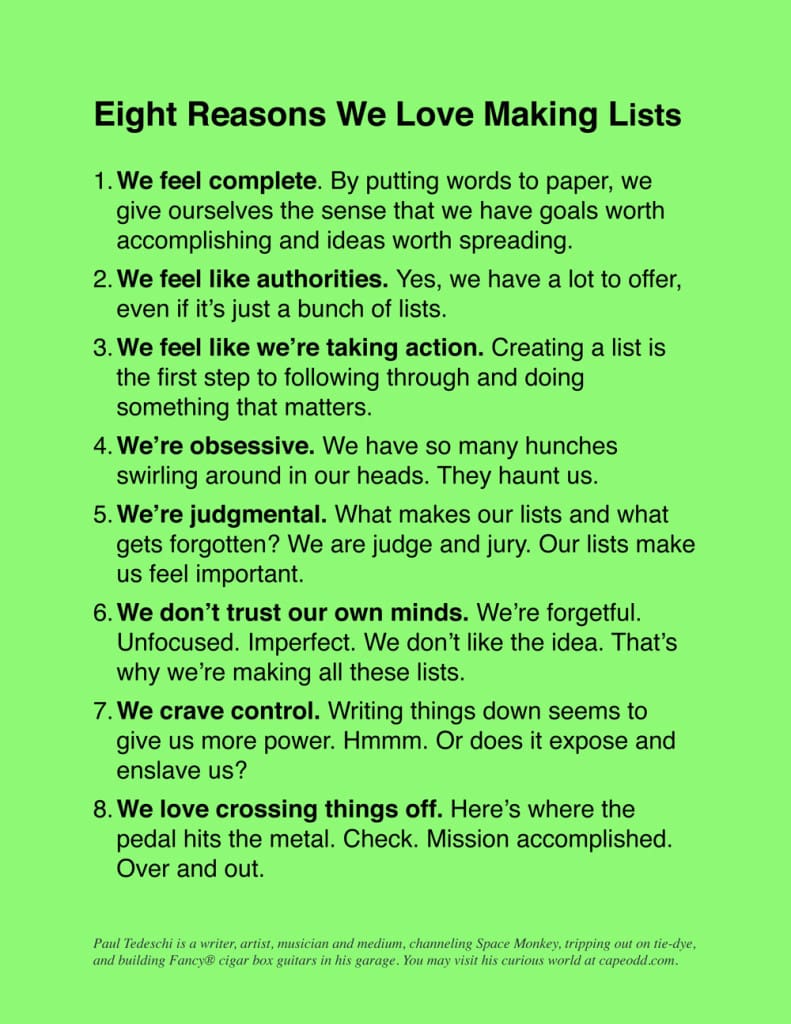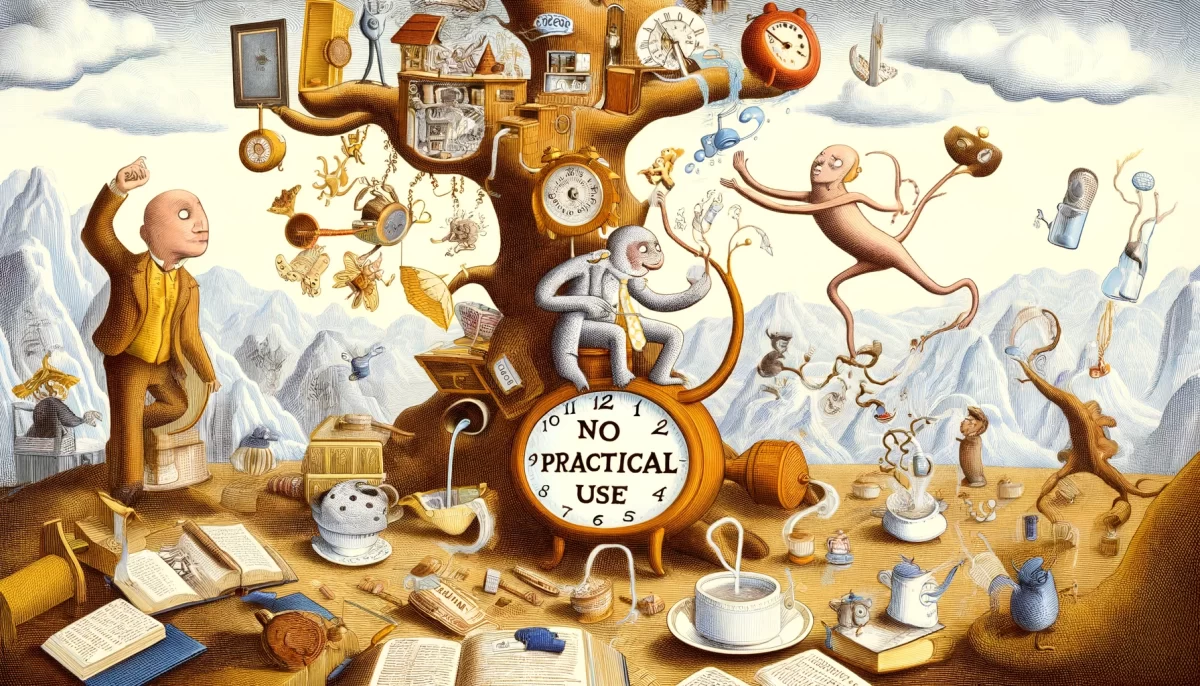
Why do we make so many lists? What are our underlying psychological motives? Why are there only eight things?
The affinity for making lists is a fascinating reflection of human psychology and behavior, embodying a range of emotional and cognitive benefits. Here’s a deeper look into the eight reasons why list-making is so appealing:
- Sense of Completion: Listing tasks or goals gives a tangible form to our aspirations, providing a clear vision of what we aim to achieve. This physical manifestation of our thoughts reinforces our commitment to them, making our goals and ideas feel both valid and achievable.
- Authority and Expertise: Crafting lists, especially on topics we’re knowledgeable about or interested in, bolsters our sense of authority. It’s a way of organizing our knowledge and sharing it with others, thereby asserting our expertise and contributions in various domains.
- Initiating Action: The act of making a list is often the first step toward action. It transitions us from a state of contemplation to one of readiness and intent. By outlining what needs to be done, we’re more inclined to start working towards these objectives, moving from planning to execution.
- Compulsion to Organize: For many, list-making is a response to the chaos of numerous thoughts and ideas swirling in our minds. It’s an attempt to capture, organize, and control these hunches, making sense of them in a structured manner.
- Exercising Judgment: Lists inherently involve making choices about what to include or exclude, reflecting our priorities and values. This selection process empowers us, allowing us to curate our focus and direct our efforts towards what we deem most important.
- Memory and Trust: Recognizing our own limitations in memory and attention, we turn to lists as external aids that help us remember and track tasks. This acknowledgment of our fallibility is humbling, yet practical, ensuring that nothing important is overlooked.
- Control and Power: Writing things down can indeed give a sense of control over our lives. By enumerating tasks, goals, or ideas, we feel a greater command over our environment and future. However, this can also highlight our dependencies on these lists, prompting reflection on their true role in our lives.
- Satisfaction in Achievement: The act of crossing items off a list is profoundly satisfying. It symbolizes completion and achievement, offering a visual and psychological reward for our efforts. This final act of marking off completed tasks reinforces our progress and motivates continued productivity.
Together, these reasons encapsulate the multifaceted appeal of making lists. They not only serve practical purposes in organizing and remembering but also fulfill deeper psychological needs for control, achievement, and self-expression.


























The reasons listed for why people love making lists are interesting and can provide insight into human psychology and behavior. While not everyone may relate to all of these reasons, they do capture some common themes and motivations behind list-making.
Feeling complete: The act of putting thoughts and ideas down on paper can give people a sense of accomplishment and direction. By creating lists, people can organize their thoughts and goals, which can be empowering.
Feeling like an authority: Creating a list can also make people feel like experts or authorities on a particular topic, especially if they have put a lot of thought and effort into their list.
Feeling like taking action: Lists can serve as a catalyst for action, by giving people a roadmap or plan for what they need to do next. By breaking down larger goals into smaller, actionable items, people can take concrete steps towards achieving their goals.
Being obsessive: Some people may be naturally drawn to making lists because they have a lot of ideas and hunches they want to capture and organize.
Being judgmental: Lists can reflect our personal preferences and priorities, and by choosing what to include and exclude, we are expressing our own values and opinions.
Distrust of our own minds: People may make lists to compensate for their own forgetfulness or lack of focus, by creating a tangible record of what they need to remember.
Craving control: Making lists can give people a sense of control over their lives, by creating a sense of order and structure in a world that can feel chaotic and overwhelming.
Enjoying crossing things off: Finally, crossing items off a list can be satisfying and provide a sense of accomplishment, which can be a motivator for continued list-making and goal-setting.